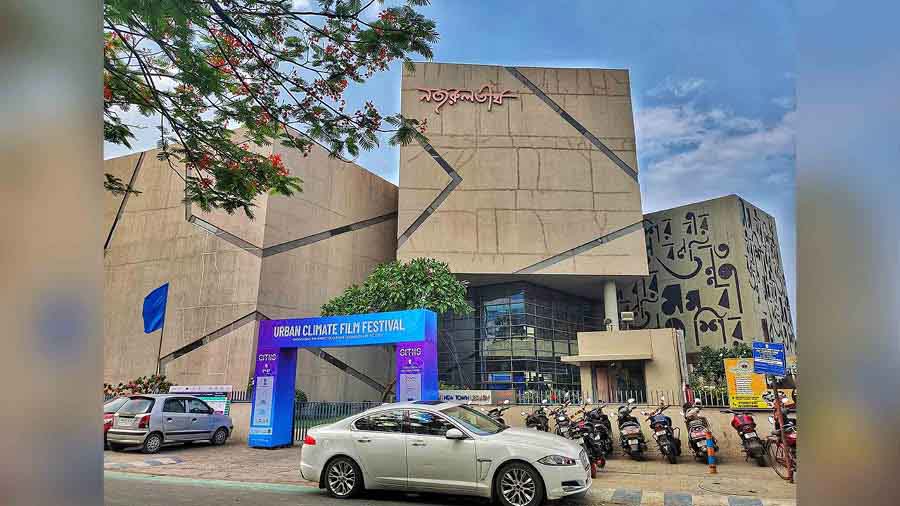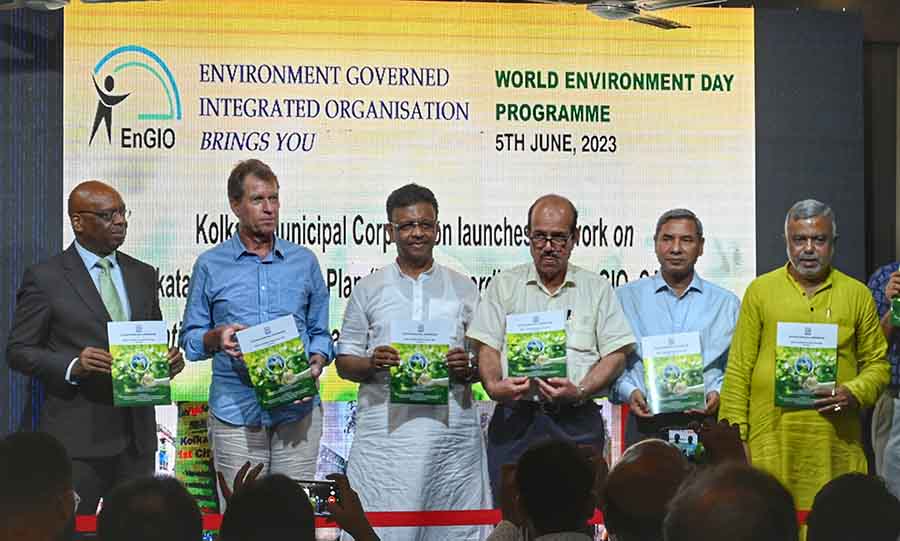“We need to leave behind a better world than the one we inherited.”
This statement was the driving force behind the first-ever Urban Climate Film Festival (UCFF), the Kolkata edition of which was held at Nazrul Tirtha in New Town from June 3-5.
Organised by the National Institute of Urban Affairs (NIUA), under its City Investments to Innovate, Integrate and Sustain (CITIIS) Programme, the festival has been supported by the Ministry of Housing and Urban Affairs, the French Development Agency (AFD), the European Union, and the New Town Kolkata Green Smart City Corporation Limited.
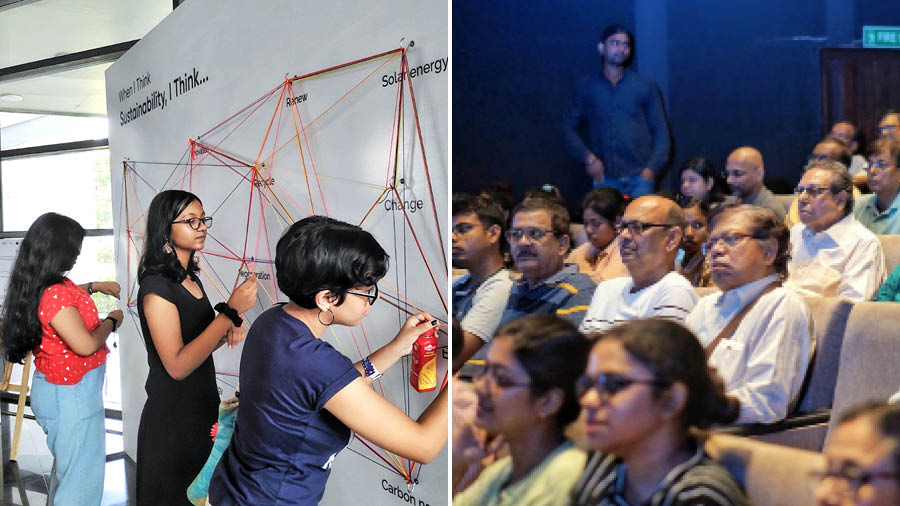
This Sustainability Board (left) at the entrance encouraged the audience to be active participants in the conversation
After receiving an overwhelming response to its call for entry — 150 films from 20 countries — a jury handpicked 27 films, and curated it according to the city. The UCFF started its run at the Alliance Française in New Delhi on March 24 this year before travelling to Mumbai. The festival arrived in Kolkata with 16 films from 12 countries, which were interspersed with engaging panel discussions.
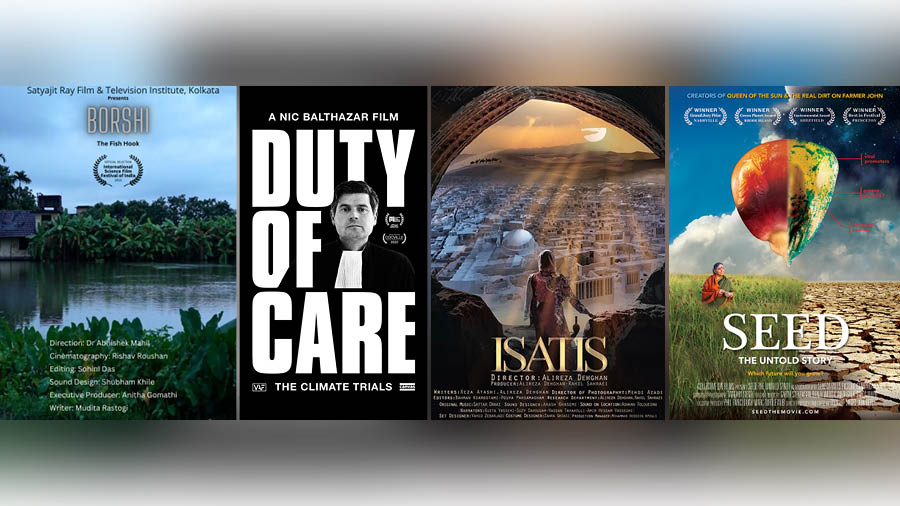
Posters of some of the films screened at the festival
The Kolkata leg started with a press conference at the Alliance Française du Bengale’s Park Street office on May 30, where dignitaries underscored the importance of the festival’s mission.
“Kolkata is the cultural capital of India and we’ve produced some of the best filmmakers in the world. We’re really happy to participate in this festival to use the power of filmmaking and tackle a global problem. Cities need to come together and fight this problem together,” said Debashis Sen, chairman, New Town Kolkata Development Authority (NKDA).
Alliance Française du Bengale director Nicolas Facino said, “We need a collective awareness, concrete and precise objectives, and access to culture and education to bring about real change. We at Alliance Française always place sustainable development at the centre while trying to highlight artistic expression.”
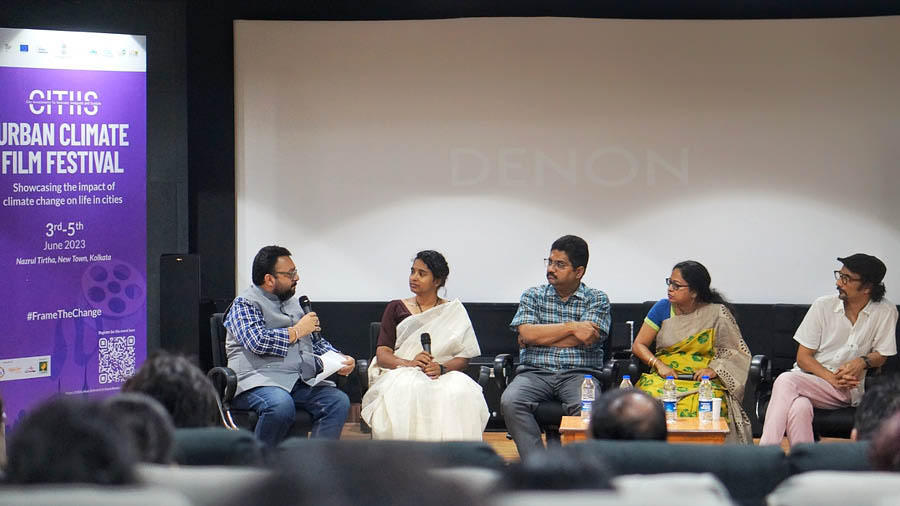
A panel discussion on cinema’s role in climate featured (L-R) Sabyesachi Bharti, Farha Khatun, Dr Rajarshi Mitra, Moumita De Das and Anirban Datta
One of the highlights was a panel discussion on Day 2 with Sabyesachi Bharti, deputy director of CMS Vatavaran; award-winning documentary filmmaker Farha Khatun; Rajarshi Mitra, associate professor of Environmental Science at Vivekananda College; Moumita De Das, assistant professor of Media Studies at Adamas University; and filmmaker Anirban Datta, professor of Direction at the Satyajit Ray Film & Television Institute (SRFTI).
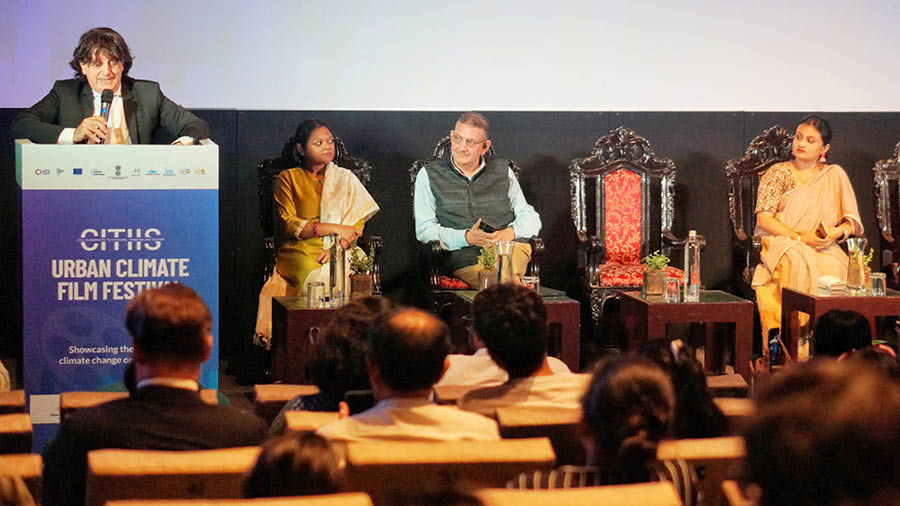
The third day coincided with the World Environment Day, when (L-R) Didier Talpain, Meghna Pal, Hitesh Vaidya and Dr Swati Nandi Chakraborty reflected upon the importance of leaving behind a better planet for future generations
The group brought their different perspectives to the discussion on how cinema can help in ecological conservation. “The prominent issues are covered by brilliant documentaries, but climate change requires a mass appeal to mitigate, and the most effective outlet for this is feature films,” said Mitra.
Datta expressed sadness over the dwindling visibility of documentaries, restricted to niche festivals and enthusiasts, and how mass viewership was restricted to fiction films. “India is producing international-quality documentaries, but unfortunately there is no visibility. We need to examine the possibility of these documentaries getting a place on OTT and other distribution platforms, while also keeping in mind the wasteful nature of production that is practised in commercial cinema.”
Das drew from her journalistic background to indicate how mainstream media rarely provides coverage to environmental news on a par with other topics, particularly in neglected areas like the Northeast. “Everything is a market, including education. If we don’t give audiences a space to understand subjects like the environment, how do we give them the space to think?”
Khatun gave a reality check to the audience about the pace of climate change, drawing on her own experiences. “I grew up in rural Bengal, and until I came to Kolkata, I never knew that one had to actually buy water. While travelling through the countryside by trains, you will clearly see who buys packaged water, which is polluting the environment, and who travels long distances to directly fill it from natural sources. We live in two different worlds.”
The festival wrapped up on June 5 with a closing ceremony that doubled as a celebration of the World Environment Day. The ceremony featured French consul general in Kolkata, Didier Talpain; New Town Kolkata Green Smart City Corporation Limited (NKGSCCL) CEO Meghna Pal; NIUA director Hitesh Vaidya; and environmental scientist Dr Swati Nandi Chakraborty.
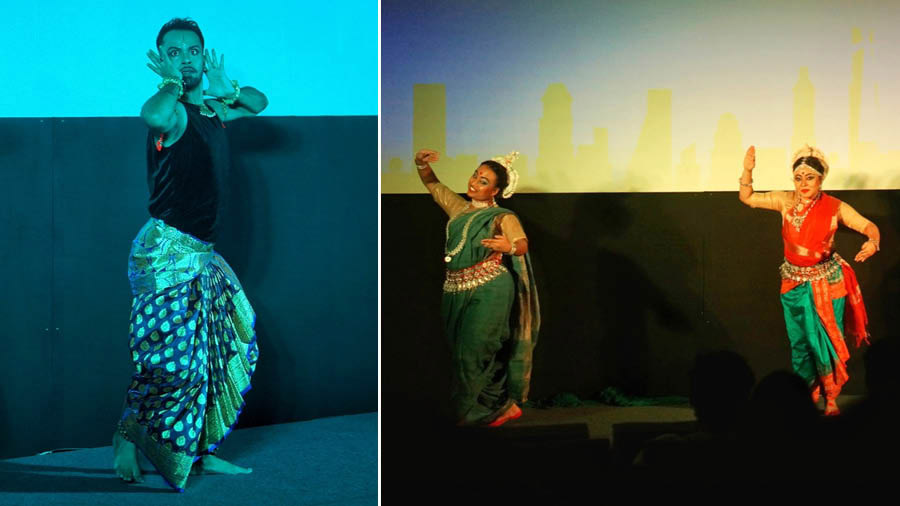
The closing ceremony featured scintillating classical dance performances by (left) Amit Das and (right) Thikana - The Art Park
“I’m really proud to bring this festival to this cultural city. I believe that the formula for mainstream climate action is to engage, evolve and enhance so that you can ideate, initiate and innovate. Each film at this festival is a call for action to all of us. If a picture is worth a thousand words, a film is worth a million words,” Vaidya said.
Talpain said: “The large and involved audience we saw in the last three days is a big reason to rejoice. The UCFF proved that cinema is not only about entertainment, but can also spread social awareness.”
Pal expressed her gratitude to the endeavour. “It is fitting for the NKDA to participate in such a futuristic initiative, given their work in New Town. We keep discussing climate change on various platforms, but the way the UCFF engaged people through films was very strong and unique.”
Chakraborty signed off by thanking the audience, and encouraging them to be active participants in the change. “I’ve seen people take a great deal of interest in the cause behind the cinema at the UCFF. The NKDA deserves credit for leading by example with its ‘Smart City’ status. The films have effectively shown the thought that goes behind working for the climate.”
